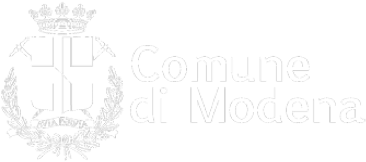Fiumalbo
It is part of the Regional Park in the Upper Frignano district of the Modena Apennines and it stretches from an altitude of 800 metres up to the 2,165 metres of Mount Cimone. It owes its name to the waters that surround it, from “Flumen Album” or “Flumen Alpium” The earliest mention of an inhabited town in this area date back to 1038, when the father of Matilda of Canossa donated the “Fortress called Fiumalbo” to the Bishop of Modena.
Why it’s worth a visit
If you love art, the mountains and winter sports, Fiumalbo is the perfect place for you. Recognised as a city of art for the historical and artistic jewels in its old town centre, while preserving its medieval aspect it also offers other important buildings added in later periods in history. The ski resorts of Abetone and Cimone are just a short distance away.
Sites you won't want to miss
The parish church of San Bartolomeo Apostolo
The parish church of San Bartolomeo in the heart of the old town centre houses remarkable works of art and late-Romanesque artefacts.
The Church of Santa Caterina or “dei Rossi”
The church of Santa Caterina, also known as the church of the Rossi confraternity, because it is the headquarters of the confraternity given this name due to its members’ red cloaks, stands in the square beside the parish church of San Bartolomeo. Of seventeenth-century origin, today it houses the Museum of Sacred Art, the only exhibition of its kind in the Modena Apennines that documents religious traditions. Here you can admire precious vestments, reliquaries, chalices and crosses, including one in gilded copper from the sixteenth century.
The Oratory of San Rocco
The Oratory of San Rocco stands at the entrance to the old town centre. Inside there is a lovely cycle of paintings from the Renaissance period.
The Oratory of the Immaculate Conception or “dei Bianchi”
Built in 1516, the Oratory of the Immaculate Conception stands right opposite the parish church of San Bartolomeo. It is also known as the oratory “of the Bianchi” due to the white robes of the confraternity of the Immaculate Conception. It has just one nave. There is a processional standard from the late seventeenth century, with the Madonna with Child in glory between Saints Bartholomew and Roch and a Coronation of the Virgin from the late sixteenth century.
Good things to eat
Typical local delicacies here in the Modena Apennines include unique flavours and specialities linked to mountain traditions such as crescentine flatbreads, borlenghi and ciacci pancakes and a delicious artisan almond brittle from Frignano still made today by skilled local confectioners following an old recipe. There is also an abundance of typical products too, like the Modena Apennine bilberries, used to make delicious jams, syrups, juices and liqueurs.
Important events
The Feast of Saint Bartholomew (23 and 24 August)
The feast of the Patron Saint dates back centuries. On the eve of this fascinating spectacle, torchlight illuminates all the streets in this medieval town and its river. A procession is held and there are fireworks, and a fair on the 24th.
The living nativity in Fiumalbo
The Living Nativity in Fiumalbo is organised in odd-numbered years on the evening of 24 December, and repeated on 3 January. The first one was organised way back in 1957 and over the years it has become an event that attracts thousands of spectators. Re-enactment of the old arts and crafts starts at about 8 pm and a few minutes before midnight, to the notes of the Hallelujah, all those taking part form a procession behind the Three Kings on horseback, heading towards the stall of the Nativity to adore Jesus.
Nearby
The village of San Michele Pelago
The village or “villa” of San Michele Pelago has an old oratory and characteristic Ponte del Diavolo or Devil’s Bridge.
The Celtic huts in Fiumalbo
Like other places along the Apennines, Doccia near Fiumalbo has some characteristic buildings with stepped roofs that copy ancient Celtic construction techniques.
Dogana and Faidello
Along Via Giardini, not far from the Tuscan border, Dogana and Faidello are the two villages in Fiumalbo that see the largest number of visitors arriving from Abetone. Dogana, which owes its name to the old “dogana” or customs house built in 1823/24, is the main village in Fiumalbo for size and number of tourists.
Mount Cimone and the ski resort
Mount Cimone is the highest mountain in the northern Apennines. It is home to an important weather observatory belonging to the Italian Air Force and a National Research Council (CNR) centre. It also has a beautiful lake at 1,500 metres a.s.l., called Lake Ninfa and its 50 km of ski slopes make Cimone the largest ski resort in the northern Apennines, comprising the municipalities of Sestola, Montecreto, Fanano, and Riolunato.
The Best Time for a Visit
Fiumalbo is an ideal place to visit at any time of year. In the winter it is perfect for those who love skiing and winter sports.





